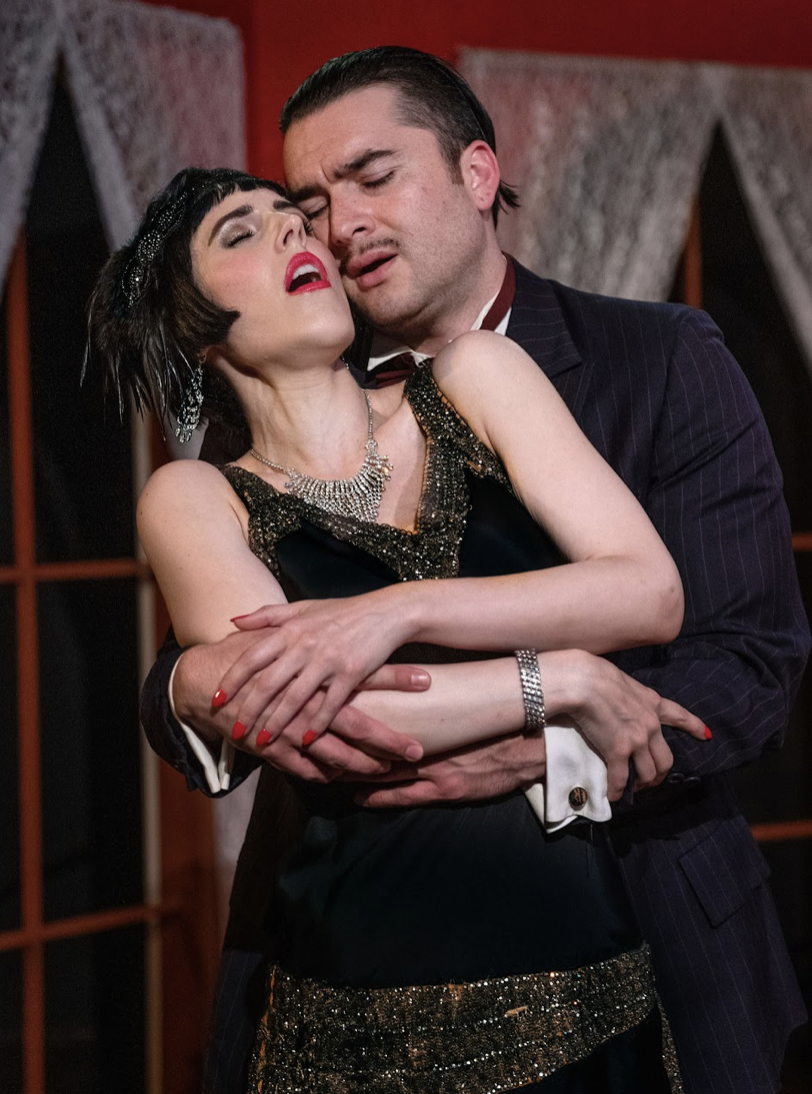|
Symphony
FROM THE NEW WORLD TO THE OLD WORLD
by Peter Lert
Saturday, June 14, 2025
Chamber
MC2 DUO RECITAL CLOSES 222'S SEASON
by Terry McNeill
Saturday, June 14, 2025
Choral and Vocal
CANTIAMO SONOMA'S LUSCIOUS A CAPELLA SINGING IN SEASON ENDING CONCERT
by Pamela Hicks Gailey
Sunday, June 8, 2025
Symphony
SRS SEASON ENDS WITH RESOUNDING TA-TA-TA-BANG
by Terry McNeill
Sunday, June 1, 2025
Symphony
YOUTHFUL VIRTUOSITY ON DISPLAY AT USO'S MAY CONCERTS
by Peter Lert
Saturday, May 17, 2025
Symphony
MYSTICAL PLANETS AND LIVELY GERSHWIN ORTIZ AT FINAL SRS CONCERT
by Peter Lert
Sunday, May 4, 2025
Symphony
VSO'S CONCERT MUSIC OF TIME, MUSIC OF PLACE
by Peter Lert
Sunday, April 27, 2025
VOCAL ELEGANCE AND FIRE AT THE 222'S RECITAL APRIL 26
by Pamela Hicks Gailey
Saturday, April 26, 2025
CANTIAMO SONOMA SINGS AN INSPIRED GOOD FRIDAY MOZART REQUIEM CONCERT
by Pamela Hicks Gailey
Friday, April 18, 2025
DRAMATIC SHOSTAKOVICH SYMPHONY CLOSES PHILHARMONIC'S 25TH SEASON
by Terry McNeill
Sunday, April 13, 2025
|
 |
|
OPERA REVIEW
Cinnabar Theater / Sunday, June 19, 2022
Mary Chun, conductor; Elly Lichenstein, director. Michelle Drever, soprano; Sergio González, tenor; Igor Viera, baritone; Gene Wright, baritone
|
 Michelle Drever and Sergio Gonzalez in La Traviata |
VERDI'S THEATRICAL LA TRAVIATA TRIUMPHS AT CINNABAR
by Terry McNeill
Sunday, June 19, 2022
In years gone by Petaluma’s venerable Cinnabar Theater mounted two complete operas each season, but in COVID times alas it’s just one. But in this June’s run of six of Verdi’s La Traviata one was surely enough, if it was really good, and the June 19 performance was in every way splendid.
As with all Cinnabar productions since 1999, it was in English in the snazzy Donald Pippin translation. No supertitles needed at Cinnabar, and the small non-reverberant hall has direct sound and short sight lines, a nice combination.
Even with the exemplary artistic direction by the incomparable Elly Lichenstein, and Mary Chun’s elegant conducting of the 11-member orchestra, this opera’s success always rides on a diva’s performance of Violetta, the soprano torn between her lust for life and the devotion of an ardent man. It’s a demanding role that had to be sung boldly and sympathetically, with pinpoint accuracy, control, vocal color, dynamics and phrasing. The fatigue factor is also present, and a convincing Violetta has to pace herself through the three acts.
Michelle Drever was that diva, delivering brilliant vocal fireworks and cogent acting throughout the two and one half hour work from 1853, beginning with a thoughtful “Ah, Fors’è lui” and followed with a scintillating “Sempre Libera” where after the anticipated emotional buildup she nailed the de riguer high E Flat note. It would not have been a great interpretation without the coloratura commanding that note. Ms. Chun’s tempo selection was on the fast side without the delicious old-fashioned phrase ritards that to many (not me) sound affected.
Traviata is not a one-star opera, and two formidable male roles converge and often surrounded Ms. Drever. Sergio Gonzalez’ Alfredo equaled Ms. Drever’s histrionics in the duo’s first act “Brindisi” (champagne drinking song), with a strong choral background framing the sets and especially the glamorous flapper-era women’s dresses. Mr. Gonzalez and Ms. Drever circled the small stage’s large sofa like two cats looking for a fight, but here it’s a tussle for passion and love.
In subsequent acts (country living, Germont’s appearance and demands; the mortal bedroom scene) Ms. Drever transformed her voice to more of a lyrico-spinto, though never losing power or stamina. Igor Viera often commanded the Act II stage with a stentorian baritone, convincing with often menacing with a harsh edge to his voice, as the role needs. There was a lovely trio with him, Ms. Drever and cellist Gwyneth Davis, and Ms. Drever’s palpable emotion in the letter-writing vignette (shades of Eugene Onegin) was captivating and to some tear producing.
Resident conductor Ms. Chun always assembles capable musicians, and this production had stellar ones, especially Tyler Lewis’ violin solos, and violist Meg Eldridge, bassist Karen Zimmerman, Kathleen Reynolds (flute), Ruth Stuart Burroughs’ oboe, percussionist John Weeks and clarinetist Mark Wardlaw.
Act III’s slow prelude beautifully echoed that of the opening act, but here the cast portrayed the unfolding tragedy without the earlier wine fueled gaiety. Gene Wright’s Dr. Grenvlle had a quiet avuncular part as Violetta’s slide towards death continued, and she fell often to the floor while seemingly gathering a small bit of strength with the aria “Addio del Passato”. I counted at least seven Ms. Drever falls in the opera, and her potent stage presence endured to the end, Mr. Gonzalez holding her in his arms and singing a touching “Parigi, o Cara, Noi Lasceremo.”
A thunderous standing ovation greeted the cast during curtain calls, surely a mesmerizing successful production for Cinnabar and a triumph for the marvelous Ms. Drever.
Pamela Hicks Gailey and Corrick Brown contributed to this review.
|

